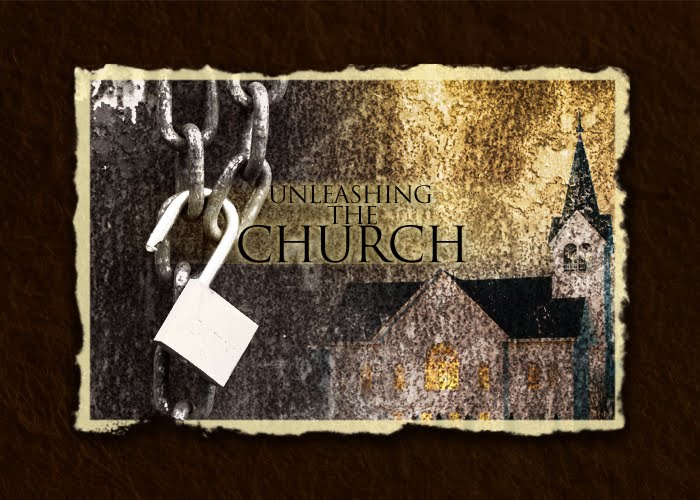The Suburban Captivity could easily be ranked first (From the contest of my last bolg). Certainly churches today are much more influenced by Suburban Captivity than they are the Liberal/Fundamentalist Controversies. But the earlier controversies had already thoroughly isolated churches and prevented them from seriously engaging the culture.
The Suburban Captivity is important because throughout Church History, the churches that have had the most significant ministries among the poor have always been poor themselves. I was working the phone banks for World Concern years ago and was shocked at the reality that all the people calling in to pledge were mostly poor themselves, but they wanted to share. Where were the wealthy that night? I guess at their small group.
It was during the church’s first three hundred years that it had its biggest impact among the poor. The earliest Christians had very few resources. They didn’t have schools, buildings, or professionally trained leadership. But most of them knew what it felt like to be poor. Consequently they had an enormous amount of passion for the poor of this world, and a strong belief in a better life for all in the next world.
Affluence has crippled us. In early America the Episcopalians and the Congregationalists dominated the landscape. They were the faiths of the Protestant elite in England and were not too concerned with engaging the poor. Then came the new kids on the block, the Methodists, they came from the ranks of the poor and ministered extensively to the poor. It is not an accident that one of America’s most respected charities, the Salvation Army, came out of 18th century Wesleyanism. But as more and more Methodists practiced God’s principles concerning sobriety, honesty, hard work, etc., they became upwardly mobile, affluent and detached from the poor.
The next group who came from the ranks of the poor and ministered back to poor was the Baptists. But as Baptists practiced God’s principles they too became upwardly mobile and affluent. And, like the Methodists, they too largely disengaged from the poor.
(There is a great line in the movie A River Ran Through It; when a Presbyterian pastor is asked, “What is a Methodist?” and he replies, “A Methodist is a Baptist who can read”).
Next came the Pentecostals, they came from the poor and ministered to the poor. Today if there is a ministry in the streets it is likely to have a Pentecostal/Charismatic flavor. But they have practiced God’s principles long enough for most of them to become more affluent, and they are disengaging themselves from their roots as well.
What group of Christians will be the next group to re-engage the poor?
This is the question that ought to be the hot issue in the seminaries of the land. Maybe the 21st century will see a “Community Church” resurgence, that is not just attractional, but to also engages the poor.
Note To Readers: First thank you all for leaving comments, I have not learned how to respond to them yet, but will take some time to do so, in the meantime, I love your insights and more importantly that we have about 1000 people reading and thinking about these issues together. Join the journey and become a follower.
Followers
Subscribe to:
Post Comments (Atom)
About Me

- Rich
- I am a slave to no man or institution. I have worked with Frank Tillapaugh for thirty years and most of the ideas are work we would like to share.
The next generation

God thank you for two amazing young leaders
Looking Forward

Each year I get to spend time with young leaders and the gap is growing between them and my generation, why?
Popular Posts
-
I have watched new pastors burn out in less than a year...why? Fuller Institute did a survey and found that 80% of pastors believe that past...
-
General Calling and Special Calling Soon after the Roman emperor, Constantine, converted to Christianity in 315 A.D. churches began to profe...
-
I saw one of my friends (Wes, he is a follower of this blog, God bless him) tonight and he told me after reading this blog he was surprised ...
-
When 20% of the people do 80% of the work in a church, the church leaders usually think that they have an 80% problem. ...
-
I am taking a break from my series to talk about something that just happen. I just met Gavin, he arrived today. His parents Dan and Steph C...
-
If we ask, “what would Jesus do in His new body, i.e. the church; that would be a continuation of what he did in his original body?” The ans...
-
And, believe it or not, a strong emphasis on edification does not often generate mission. Mission potential isn't dependent on how well...
-
Several years ago my friend Frank took a walking tour in London that ended up at Wesley’s chapel. As the tour group ap...
-
Nothing influences the environment of a church as much as the preaching. It is through preaching that people understand how their pastor vie...
-
Ok yesterday I had one response to my blog and while it was thoughtful I was reminded that words on a screen do not always convey the experi...

No comments:
Post a Comment